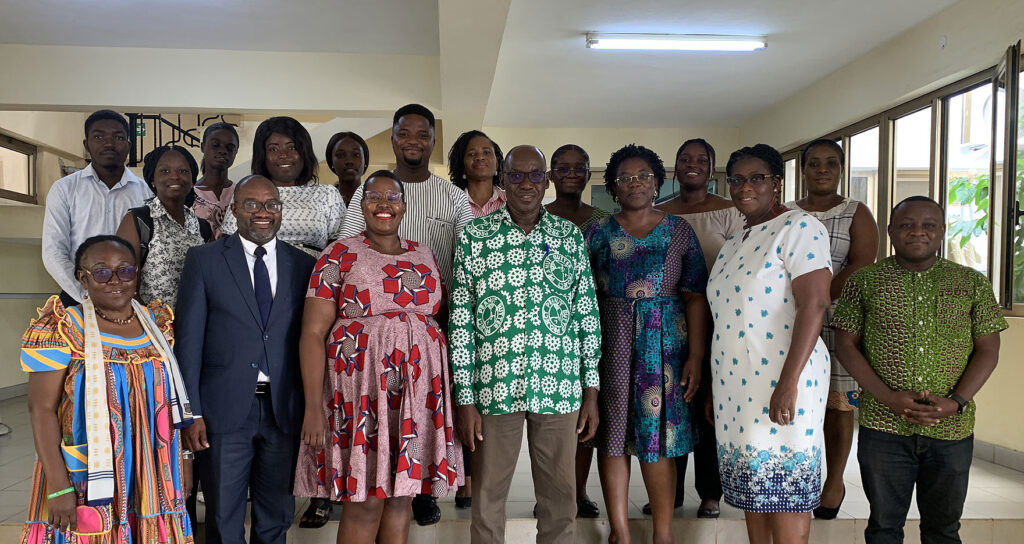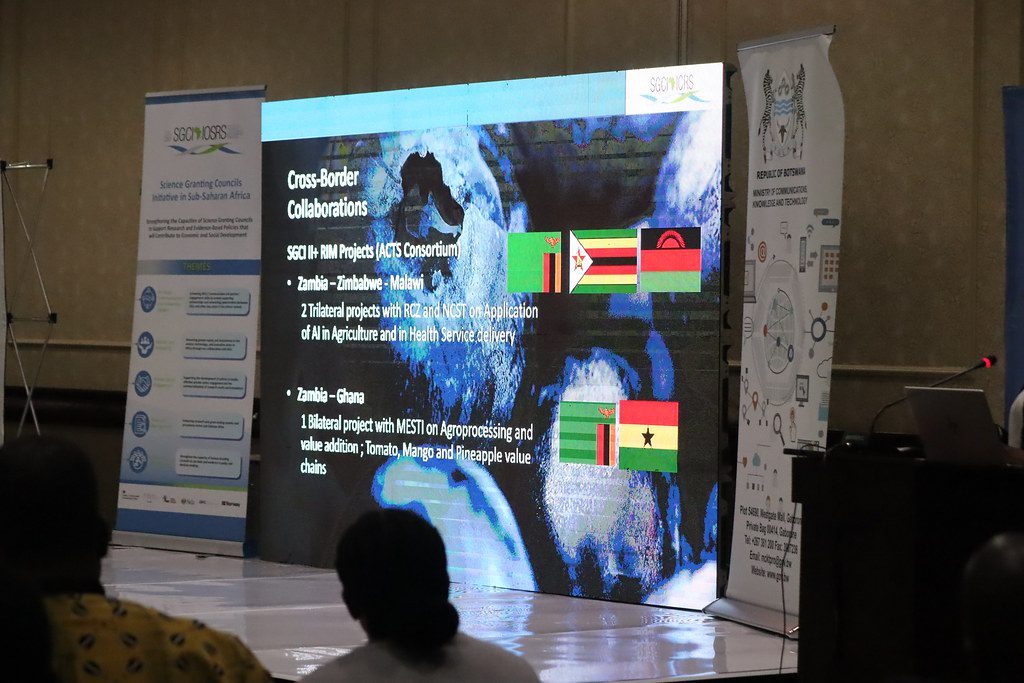SGCI News
In 2021, Prof Kwesi Firibu Saalia officially started his journey as an O.R. Tambo Africa Research Chair at the University of Ghana. Prof Saalia is an internationally acclaimed scientific leader…

In 2021, Prof Kwesi Firibu Saalia officially started his journey as an O.R. Tambo Africa Research Chair at the University of Ghana. Prof Saalia is an internationally acclaimed scientific leader focusing on food safety, food quality and minimizing post-harvest losses and waste.
When he was named an O.R. Tambo Africa Research Chair, Prof Saalia spoke about his intent to centre research and mentoring activities on indigenous foods. At a recent institutional visit, this was evident in the research projects being supported. Postgraduate students are focusing on researching foods used to solve geriatric malnutrition and integrating gender and sex analysis in this work. They are focusing on the tomato value chain, and how to increase nutritional value of street foods. They are utilizing modelling to understand how the food processing of fermented maize dumpling can be standardised with a focus on the export market in Ghana. They are conducting research into smart food processing of freshly cut pineapples to improve nutritional value and microbial safety. They are exploring how to valorise banana plantain peels as an alternative to plastic as a packaging material and contributing to research on the circular economy. Research on different types of green leafy vegetables found in Ghana will inform how Ghana can support greater intake of folic acid to improve child and maternal healthcare. And they are exploring methods to detoxify aflatoxins in legumes and peanuts using microorganisms.
This research is positioning this research chair as a leading hub for the training of food scientists and food process engineers to combine science, technology, engineering, and social systems to address existing challenges in food systems and transform indigenous foods into globally acceptable and competitive products. Implemented using multi-disciplinary methodologies, the chair incorporates food process engineering, food chemistry, food microbiology, agricultural engineering, social science, and business development.
The O.R. Tambo Africa Research Chairs Initiative (ORTARChI) combines political, development and higher education objectives. It aims to honour a leading figure in the development of African unity; have a catalytic impact on the development of research infrastructure in recipient countries; and contribute to knowledge production and high-end skills in alignment with AU Agenda 2063 and STISA 2024. Ten (10) O.R. Tambo Africa Research Chairs across seven countries namely, Botswana, Burkina Faso, Ghana, Mozambique, Tanzania, Uganda, and Zambia have been awarded. The NRF and South Africa’s Department of Science and Innovation (DSI) with core partners, the Oliver and Adelaide Tambo Foundation, and Canada’s International Development Research Centre (IDRC) have partnered with NRF sister agencies in the seven countries and the universities to implement the initiative.
Countries
Categories
Related News
How Zambia’s science council is funding research that matters
When Zambia’s National Science and Technology Council (NSTC) was established in 1997, its founding vision was to harness science, technology, and innovation to improve the lives of ordinary Zambians. More than two decades later, that vision is increasingly taking shape through a growing portfolio of…
Voices of SGCI: Council leaders on the direction and ambition of SGCI 3
At the African Union’s Science, Technology and Innovation Week in Addis Ababa, earlier this month, leaders of science granting councils reflected on what SGCI Phase 3 represents for Africa’s science and innovation systems. From ownership and alignment to stewardship and sustainability, here are their voices…
Building Africa’s science future: inside the SGCI alliance
As Phase 3 of the Science Granting Councils Initiative launches on the margins of the African Union Summit in Addis Ababa last week, the SGCI Alliance Chair explains why this moment marks a decisive turning point for African science. Cephas Adjei Mensah describes what is…
SGCI funded projects
Rwanda’s integrated approach to sustainable agriculture and nutrition
Project Titles & Institution Areas of Research Number of Projects being funded Project Duration Grant Amount In-Kind Distribution Council Collaboration with other councils





